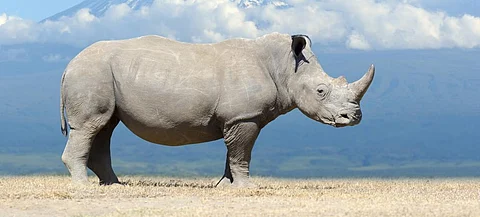

A proposal by Eswatini (formerly Swaziland) to reopen legal international trade in white rhino horn was rejected at the ongoing 18th Conference of Parties (CoP) to the Convention on Endangered Species of Wild Fauna and Flora (CITES) in Geneva on August 25, 2019.
Eswatini can already trade limited amounts of live southern white rhinos and hunting trophies but wanted to change the rules that currently forbid the international commercial trade in rhino horns.
The proposal was rejected, after a secret ballot, with 102 votes against, 25 votes for and seven abstentions.
“Governments at CITES have recognised now is not the time to contemplate the reversal of the strict prohibitions on international trade in rhino horn. Doing so would have undermined years of hard work in Asia to reduce demand for rhino products and enforce existing bans in countries there,” said Matt Collis, director, international policy, International Fund for Animal Welfare or IFAW.
Poached rhino horn mostly makes its way to the black market in Asia, Vietnam in particular.
A report tabled at CoP18 titled Conservation of and trade in African and Asian rhinoceroses reported an increase of more than 28 per cent in population across all rhinoceros species, with only the Sumatran rhinoceros not showing any increase in numbers.
“However, there is no room for complacency. Rhino poaching and trafficking in rhino horns remain very high with at least three rhinos still poached every day in Africa,” said Collis in a press statement.
CITES CoP18 began in Geneva, Switzerland on August 17 and will continue until August 28.